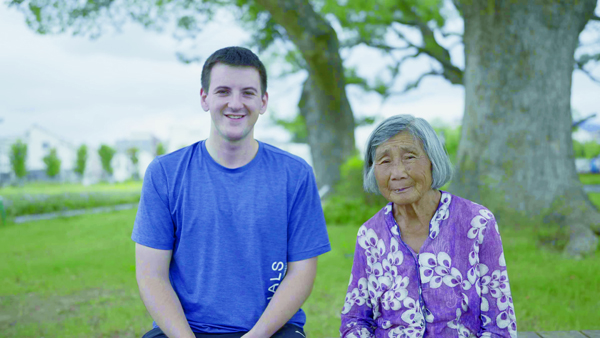A journey through the 'shared countryside'


Earlier this month, I received an invitation to participate in an episode of the series Transformation of Zhejiang Over the Past 20 Years. the Impressions of China in Foreigners' Eyes. I was intrigued to learn that the Green Rural Revival Program of Zhejiang province was awarded the Champions of the Earth title by the United Nations in 2018, which aroused my curiosity about this region. Through further research, I encountered a term known as the "Cailu Experience". But what exactly does this mean? The only way to find out was to head to Cailu village.
As I strolled through the picturesque countryside of Cailu, I gazed out over the fields and noticed a reaping machine plowing the fields, but there was no one behind the wheel. When I approached the reaping machine, I saw someone using what appeared to be a cellphone to control the machine.
"Rice transplanters, drones, driverless tractors, and other modern agricultural tools are all available, so the whole production process from sowing, fertilization, harvesting, and drying is now automated," Li Xiang, of Dongyang Certusnet Corporation and the project manager of Dongyang Cailu 5G Smart Agriculture, explained. "One person can plant hundreds of mu of fields."
I was completely astonished to hear this, especially knowing that things were quite different in the village three decades ago.
Laying the foundation
In the early 1990s, about 85 percent of the labor force in Cailu left for urban areas to find work, leaving roughly 30 percent of the paddy fields in the village unattended. I was curious about how this problem was solved so I sat down with 83-year-old Lu Fasu, a well-known resident of Cailu who invented a special farming method in 1993 known as "direct seeding".
"It's a very simple method: just sprout the seeds, sow them, and then harvest them," Lu explained. "As I couldn't do so much work alone, I just scattered all the seeds."
Later on, Lu told the others that her experiment was successful, and that people in the village would no longer need to transplant and pull out rice seedlings. Although this laid the foundation for the "Cailu Experience", the villagers were not entirely convinced by Lu's experiment. However, their mindset slowly began to change.
The exhibition hall of Cailu's Community Service Center showed that 19 members of the Communist Party of China from the village pioneered the concept of "direct seeding" by further experimenting with it in 1994. After achieving yet another harvest, the villagers' worries gradually subsided, allowing "direct seeding" to be successfully promoted throughout the village, and later on in other parts of Zhejiang province. Since 1996, Cailu has implemented unified management of farmland, fields and roads, as well as trees and canals that are well-designed, forming today's "shared countryside".
From mechanization to digitization
I was introduced to "smart Cailu", the cloud-like platform that the village developed. The platform generates signals through photovoltaic power generation and incorporates the 1,200 mu (80 hectares) of farmland into 5G digital management. This platform allows seeding, fertilization, pest control, harvesting, drying and storage to become increasingly automated. The soil moisture, water quality, water temperature, and pH values can be fed back to the platform through 5G, and then this information can be sent to agricultural technicians.
This platform also provides information about the village as a whole. The monitoring and central command system, which encompasses the entire village, provides information on the number of residents, where they live, their medical insurance status, and the rental status of farmers.
The digitization not only makes farming more efficient but also makes life easier for the villagers.




































